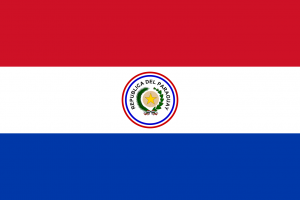Language/Paraguayan-guarani/Grammar/Adjectives
Hi Paraguayan Guaraní learners! 😊
In this lesson, we will explore adjectives in Paraguayan Guaraní. Adjectives are words that describe or modify nouns, but they can also be used as a predicate. They are an essential part of any language, and mastering them is crucial to becoming fluent.
Finish this lesson and explore these related pages: Pronouns, How to Use "Be", Give your Opinion & Conditional Mood.
Introduction[edit | edit source]
In Paraguayan Guaraní, adjectives come before the noun they modify. They agree in number and gender with the noun they describe. For example:
| Paraguayan Guaraní | Pronunciation | English |
|---|---|---|
| ko'ãga | /kɔ.ʔã.ɡa/ | beautiful woman |
| ñande reko | /ɲãn.de ɾe.ko/ | our custom |
| mborayhu | /mboa.ɾãj.hu/ | good fruit |
In this lesson, we will explore different types of adjectives and how to use them in a sentence.
Types of Adjectives[edit | edit source]
Descriptive Adjectives[edit | edit source]
Descriptive adjectives describe an object or a person, and they usually come before the noun. To pluralize descriptive adjectives, you need to add "-kue" for masculine nouns and "-rã" for feminine nouns. For example:
| Paraguayan Guaraní | Pronunciation | English |
|---|---|---|
| opa'ỹ | /ɔ.pa.ʔɨ/ | tall |
| chikyte | /tʃi.kɨ.te/ | small |
| mandu'arã | /man.du.ʔa.ɾã/ | white (feminine) |
| avatî | /a.βa.ˈti/ | green (masculine) |
Here is an example dialogue:
- Person 1: Ko'ãga opa'ỹ (A beautiful tall woman)
- Person 2: Ko'ãga chikyte (A beautiful short woman)
Possessive Adjectives[edit | edit source]
Possessive adjectives indicate ownership or possession. In Paraguayan Guaraní, possessive adjectives agree in gender and number with the noun they modify. For example:
| Paraguayan Guaraní | Pronunciation | English |
|---|---|---|
| ñande | /ɲãn.de/ | our |
| mborayhu | /mboa.ɾãj.hu/ | good |
| iporã | /i.po.ɾã/ | beautiful |
| oî | /o.ˈi/ | your |
To use possessive adjectives, you need to add them before the noun. Here is an example:
- Person 1: Mborayhu ñande roga (Our good dog)
- Person 2: Oî ava (Your father)
Demonstrative Adjectives[edit | edit source]
Demonstrative adjectives are used to indicate a specific object or person. In Paraguayan Guaraní, they agree in gender and number with the noun they modify. For example:
| Paraguayan Guaraní | Pronunciation | English |
|---|---|---|
| oî ko'ã | /o.ˈi ˈkɔ.ʔã/ | this woman |
| che roga | /tʃe ɾo.ɣa/ | that dog |
| opuko | /o.pu.ko/ | those hills |
To use demonstrative adjectives, you need to add them before the noun. Here is an example:
- Person 1: Che roga ary (That dog is big)
- Person 2: Oî ko'ã nde rôga (This woman's dog)
Interrogative Adjectives[edit | edit source]
Interrogative adjectives are used to ask questions about a specific object or person. In Paraguayan Guaraní, interrogative adjectives are "heta" for masculine and "jetaité" for feminine nouns. For example:
| Paraguayan Guaraní | Pronunciation | English |
|---|---|---|
| heta ñande ko'ã | /he.ta ɲãn.de kɔ.ʔã/ | which our woman |
| jetaité piko | /dʒe.ta.i.ˈte pi.ko/ | which bird |
To use interrogative adjectives, you need to add them before the noun. Here is an example:
- Person 1: Heta ñande ko'ã oje'e (Which of our women is she?)
- Person 2: Avei, jetaité piko? (And which bird?)
Conclusion[edit | edit source]
Adjectives in Paraguayan Guaraní play an important role in describing and modifying nouns. They come before the noun and agree in gender and number with it. In this lesson, we explored different types of adjectives such as descriptive, possessive, demonstrative, and interrogative. Keep practicing and using adjectives in your everyday conversations to become more fluent in Paraguayan Guaraní. Remember, to improve your Paraguayan Guaraní Grammar, you can also use the Polyglot Club website. Find native speakers and ask them any questions!
➡ If you have any questions, please ask them in the comments section below.
➡ Feel free to edit this wiki page if you think it can be improved. 😎
Impressive work on finishing this lesson! Explore these additional pages to enhance your understanding: Say Hello and Greetings in Paraguayan Guaraní, Future Tense & How to Use Have.
Other Lessons[edit | edit source]
- How to Use Be
- How to Use Have
- Questions
- Negation
- Conditional Mood
- Future Tense
- Pronouns
- Plurals
- Give your Opinion

